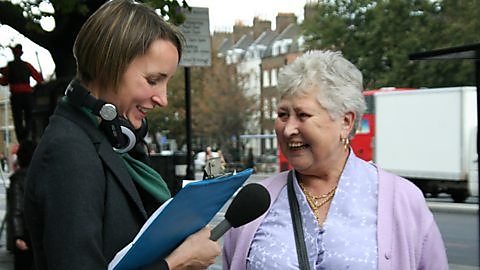This collection of BBC News explainer videos could be used for helping students understand complex topical stories.
Discussing topical stories can be a powerful way to engage pupils with the curriculum, bringing topics to life and highlighting their relevance. Finding news reports to use in class which explore a complex story in a concise but impartial way can be a challenge.
BBC News' Ros Atkins produces these regular short 'explainer' films covering a wide range of topical stories. These include current events such as the cost of living crisis and the war in Ukraine. You might find these helpful in answering pupils' questions or concerns about world events, or for linking curriculum topics to current events.
The videos cover themes which relate to a wide range of curriculum subjects and teachers of citizenship, geography, politics, English and media studies, among other subjects, might find them a useful stimulus for classroom discussion.
The links below will take you through to BBC News pages.
Ros Atkins and PSHE and citizenship education specialist Michelle Springer discuss how these BBC News explainers might be used in the classroom.
ROS ATKINS: Hello! I'm Ros Atkins. Welcome to BBC Teach. Welcome to the BBC newsroom. You might recognise where I'm sitting because this is precisely the spot where I record my news explainers, which you may have seen.We cover a vast array of subjects, from the war in Ukraine to British politics to climate change to lots of different issues that we know people care a great deal about.And when we set out making these explainers what we're trying to do is to give you all of the essential information so you feel properly informed on whatever the issue or the story is that you want to know more about.And in the last few months we've had some really lovely surprises. We've started hearing from teachers and children from lots of different countries in the world saying they're using our explainers in their classrooms to try and help them understand the news and also discuss the news.
ROS ATKINS: We, er, love seeing these tweets, these messages. Here's one from Melody Smith. She's a teacher in the US, who says – and I'm sure this is slightly overstating it – "Ros Atkins saves the day again explaining the situation in Ukraine way better than I did along with concepts from our last unit." Erm, and we're very grateful to all the teachers who've got in touch.
So we wanted to explore with the help of "BBC Teach" how these videos could be used in the classroom. And I'm joined by the education consultant Michelle Springer. Hi, Michelle. Thanks for coming in.
MICHELLE SPRINGER: Hi!
ROS ATKINS: So, erm, we make quite a few of these videos. How do you think teachers could put them to use?
MICHELLE SPRINGER: Students often come in, you know, knowing about things but not really very much about it. So they see most of their news on, you know, social media, maybe YouTube or Twitter or something, but don't really know exactly what they're-, what they're seeing or what they're-, what they're talking about.And they come in with, you know, bits of misinformation or, you know, half bits of- of knowledge.
And they talk about it amongst themselves. Erm, and really it's the school's duty to try and help them to understand that a bit better.Erm, quite-, it can be difficult at times because even teachers themselves might not understand fully, you know, the news story, especially when it's just broken. Erm, and something like the Ukraine war, for example, we, erm, might have had a- a difficult job explaining to- to students, erm, impartially, exactly what was happening, trying to go through everything.
Erm, and so for schools as a whole it-, they provide a really useful way of making sure that- that there's a-, there's a- a universal or a- a general, erm, equal way of seeing things, not just from the point of view of individual teachers.
ROS ATKINS: Now, one of the videos you wanted us to highlight was one we made recently about the government's Rwanda policy, which ties into its immigration policies. Let's have a look at the beginning of that one.
CAPTION V/T: Ros Atkins on… The Rwanda asylum seekers plan (June 2022)
ROS ATKINS V/T: In April the UK government announced a new immigration policy.
CAPTION V/T: Priti Patel MP, Home Secretary
PRITI PATEL V/T: Those who travel to the UK by illegal and dangerous routes, including by small boats across the Channel, may be relocated to Rwanda where they will have their asylum claims considered.
ROS ATKINS: Now, Michelle, you were suggesting that teachers could just stop the video right there after the first clip. Why was that?
MICHELLE SPRINGER: Well, I think that it's-, it highlights a particular part of this policy that students will have an opinion on, and they can start by talking about their views on it but also identify pros and cons straight away.And I think you then go on to explain a little bit more about the story, which can help them to also formulate their own views and also understand how you might take a bit of information and start to look at it critically.
ROS ATKINS: Well, one of the bits of information that we looked critically at in the case of one of our videos was a Sun headline which related to, er, a police investigation into a gathering that the l-, the opposition leader Keir Starmer attended.
CAPTION: THE SUNKeir Starmer enjoys beer with Labour workers despite lockdown rules banning indoor social gatherings1 May 2021
ROS ATKINS: Here's a headline from The Sun newspaper where they say "Keir Starmer enjoys beer with Labour workers despite lockdown rules banning indoor social gatherings." And that was one of many different sources we used in our video.And I guess it's perhaps useful for- for pupils and- and teachers to think about why we've used different sources in different ways.
MICHELLE SPRINGER: Yeah, it definitely is. I think throughout all of your videos and throughout the explainers they- they use different kinds of information, so clips from the BBC but also headlines from different types of newspapers and social media.And so students can look at that and, erm, with the help of teachers, think about what kind of stories are perhaps more- more accurate than others or what kinds of things that they're reading are fact and what- what things are opinion, look at the language in those things, and start to really analyse how the news is presented.
ROS ATKINS: There's also, I guess, a- a broader question of fairness, which- which connects to impartiality, which is we're always trying to think, whoever the protagonists are in a particular story or issue, have we fairly represented their perspective on a story.
MICHELLE SPRINGER: Mm, and impartiality is really important. And certainly in the-, in the citizenship curriculum, but across the- the school, across education, one of the things we're trying to teach students is how to see different people's points of view.Erm, and so one activity that they might do is to think about the different players in a situation and what their different needs might be, what their different views might be, and then-, and then work through that in groups or together as a class, and then they'll be able to watch and- and also see how you do it.And I guess that's something that you have-, you think quite a lot about when you-, when you do those, is it? [laughs]
ROS ATKINS: Yeah, we spend-, we spend an awful lot of time thinking about it because one of our, you know, core missions is to help people watching understand the perspectives of the deep-, different people in- inside a story.So here's one example. Recently we covered the- the rail workers' strike, organised by the RMT Union, one of the biggest strikes of its type for a generation.And at the heart of the debate about the merits of this strike or otherwise was the issue of inflation, the rise in the cost of living and how that connects to how much people should be paid.Now, the unions and the government, well, they both agreed that inflation was an issue but they'd both drawn quite different conclusions about what to do about it. Have a look.
CAPTION V/T: Ros Atkins on… Why rail strikes are happening (June 2022)
UNION REP: Our members haven't had a pay rise for up to three years. So, inflation is now 11.1% on the RPI scale. There's two years ahead of that where they've not had a pay deal. They are getting poorer.
ROS ATKINS V/T: No, in May 2019 the RMT did secure a pay deal for some of its members. As for inflation, it is high. But Boris Johnson says that's a reason to show restraint.
BORIS JOHNSON V/T: If wages continually chase the increase in prices then we risk a wage-price spiral.
CAPTION: FINANCIAL TIMES"When workers demand pay rises to match higher living costs – and [then] companies raise prices to protect their margins – in a repeating, self-fulfilling process"
ROS ATKINS V/T: The FT defines a wage spiral as when workers demand pay rises to match higher living costs, and then companies raise prices to protect their margins, to protect their profits, in what the FT calls "a repeating, self-fulfilling process."
CAPTION: "Energy prices are pushing up inflation – not wages"Trades Union Congress (TUC)
ROS ATKINS V/T: Now, unions counter this idea, arguing that energy prices are pushing up inflation, not wages. And while that analysis is contested, the government accepts wages, in this case, should rise.
CAPTION: Simon Clarke MP, Chief Secretary to the Treasury
SIMON CLARKE MP V/T: No one is suggesting there's some kind of pay freeze required here. We all want to see a sensible pay increase.
ROS ATKINS: And that's-, I-, you know, one of quite a few examples I could give you of where we've tried to explain not who's right or wrong but why different actors, different protagonists within a story are doing what they're doing.
MICHELLE SPRINGER: And I think that's really important for the subject areas that s-, that students are- are learning about. So, you know, they might do those kinds of things in politics, or citi- citizenship, but in English, or any of the geography, any of the different subjects that they're studying, but it's also just a really key life skill, isn't it, the kind of, you know, being able to watch the news, being able to look at different sources and- and- and think about, you know, whose perspe- perspective it's being presented from or whether there are other perspectives that might be… that might impact on that or that- that they should be considering.So I think it's- it's a really good way of- of helping students to- to form those life skills too, and their digital literacy, and critical thinking in particular.
ROS ATKINS: And actually when I'm making them I often think about GCSE and A-level English and history where often you were being asked to see a story or see an experience through the perspective of one person or one party or one organisation or another. And actually the- the things we're trying to do here are- are quite similar to that.
MICHELLE SPRINGER: And I think with that- that storytelling also comes the w-, how you use evidence. So, often you're doing that as well, bringing in some of the other things.And you said in history. And in history, of course, they have to use sources all the time. And in their writing and in their- their work they're supposed to take all that information, put it together in some way, draw conclusions, and- and use evidence well.And so even just watching these, even if it's not specifically for the story that you're talking about, just for the- the way that it's structured, is also a really useful way of- of doing that.And in media too, that the students studying media at GCSE and A-level often have to think about things, not just the content but the way that it's formatted.
So, I guess that's another thing that- that you work on as well, the way that you put it all together in a-, in a package that's kind of short and concise.
ROS ATKINS: Yeah, we have a lot of different techniques, essentially, we're using to pass on information or pass on explanation.And I always think it's – I sometimes do this with my daughter, who's doing GCSEs at the moment, is to say, well, let's look at the different techniques we can use to make an argument or to explain something or to introduce some information.And perhaps there's a fun exercise to see what manoeuvres I'm using. Certainly one I would emphasise. You highlighted the Rwanda video and how I set up the policy right at the start. And we often do that.We introduce at the very beginning, well, this is precisely what we're talking about. Another thing I always try and do is at the end of the videos leave you with a thought that's sufficiently punchy and clear that you can take it away. So here's one example of how we try and do that.
CAPTION: Ross Atkins on: Why rail strikes are happening (June 2022)
ROS ATKINS V/T: There are profound tests, for the government and its stated commitment to a high-wage economy, for Labour and its relationship with the unions, for the rail employers and their efforts to run a business with changing travel habits, and for the union and the leverage it has to serve its members. Something is gonna have to give.
ROS ATKINS: And that's one example. I'll let the- the children and the teachers judge whether I'm doing it well or not. But what I'm trying to do at the end of these videos is to pull together the different strands that we've explored into- into one conclusion that you can kind of take away and which perhaps provides a framework with which you can see the whole issue.
MICHELLE SPRINGER: Yes. And I think also, as you're-, as you're progressing towards that point, there are lots of interesting techniques along the way that students can look for and- and-, or teachers can point out to them.Things like referring back to- to what you said before, and then how you move along the argument as you go, and like we said before, how you use evidence to support the things that you're saying.
ROS ATKINS: Thanks for coming in. It's great to speak to you.
MICHELLE SPRINGER: Thanks!
ROS ATKINS: It's very exciting to think of these videos being used in the classroom. Thanks for your help with that.
MICHELLE SPRINGER: Yeah, absolutely. Thanks.
ROS ATKINS: Hopefully, er, more people having listened to Michelle will be able to use our explainers in the classroom. Certainly it makes our day when we hear from teachers and pupils to hear that they're being used in a range of different ways to understand what's happening in our world.And if you do wanna let us know how you're using our explainers, by all means get in touch via Twitter or via email.But for the moment, thanks very much for using BBC Teach, and we'll see you soon.
January - June 2024
Ros Atkins on... How different countries protect children online. videoRos Atkins on... How different countries protect children online
Analysis editor Ros Atkins looks at what other countries are doing to try and protect children online. (Published 11 May 2024)

Ros Atkins on… How the Ukraine war has stagnated. videoRos Atkins on… How the Ukraine war has stagnated
t is almost two years since Russia’s full-scale invasion of Ukraine began, but the front line of the war has barely moved in 12 months. The BBC’s analysis editor Ros Atkins examines what three key locations tell us about why the war has stagnated. (Published 10 February 2024)
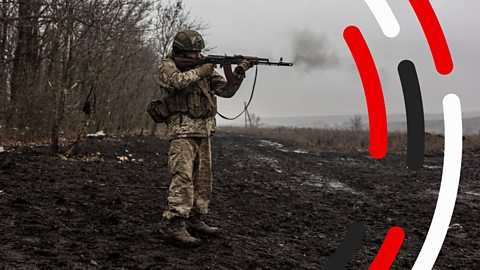
Ros Atkins on… Iran, its proxies and the ‘Axis of Resistance’ videoRos Atkins on… Iran, its proxies and the ‘Axis of Resistance’
The US has launched strikes on 85 targets in Syria and Iraq in response to Sunday's drone attack on a US military base that killed three soldiers. The US military's Central Command says its forces conducted airstrikes against Iran’s Islamic Revolutionary Guards Corp Quds Force and affiliated militia groups. The BBC's analysis editor Ros Atkins explains the Iran-linked targets. (Published 3 February 2024)
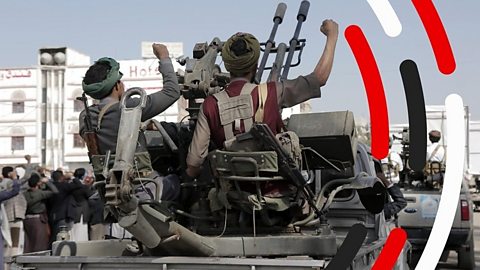
July - December 2023
Ros Atkins on... What have climate summits achieved? videoRos Atkins on... What have climate summits achieved?
Nations at the UN climate summit have for the first time taken explicit aim at the use of fossil fuels. At the COP28 talks in Dubai nations agreed to "transition away" from coal, oil and gas. But this is far from the first global climate agreement. The BBC's analysis editor Ros Atkins examines what effect 30 years of COPs has had on efforts to halt climate change. (Published 13 December 2023)
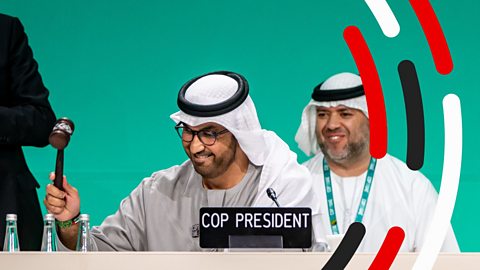
Ros Atkins on... Do the rules of war protect hospitals? videoRos Atkins on... Do the rules of war protect hospitals?
Israeli forces have entered Gaza's largest hospital in what the military calls a "precise and targeted" operation against Hamas. The BBC's Analysis editor Ros Atkins examines how the rules of war apply to hospitals caught up in military action. (Published 15 November 2023)
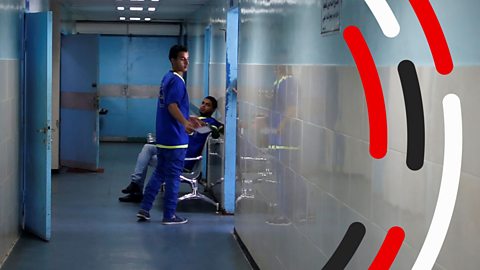
Ros Atkins on… How the HS2 plan changed over the years
Speculation has been growing over the future of the high speed rail line HS2 after the government did not guarantee that the line will run from the Midlands to the North West. The BBC’s analysis editor Ros Atkins has taken a look back at the delays, spiralling costs and cuts that have affected HS2 since it was first proposed in 2009. (Published 26 September 2023)

Ros Atkins on... Libya’s political turmoil and the floods. videoRos Atkins on... Libya’s political turmoil and the floods
Officials in Libya fear 20,000 people may have died in the devastating floods which struck on Sunday night. The BBC's analysis editor Ros Atkins examines how the disaster is complicated by years of political crisis in Libya.
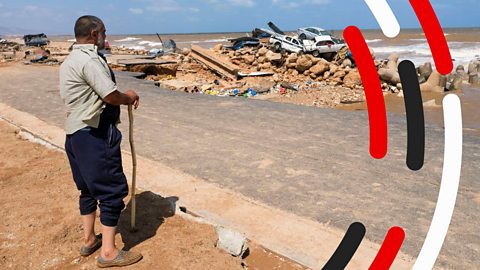
Ros Atkins on... questions for the government over unsafe concrete. videoRos Atkins on... questions for the government over unsafe concrete
More than 150 schools in England have been identified as having a type of potentially dangerous concrete - with many buildings and classrooms closing until they can be made safe. But how long will that take? And how many more schools could be affected by RAAC (reinforced autoclaved aerated concrete)? The BBC's Analysis editor, Ros Atkins, looks at the key questions.
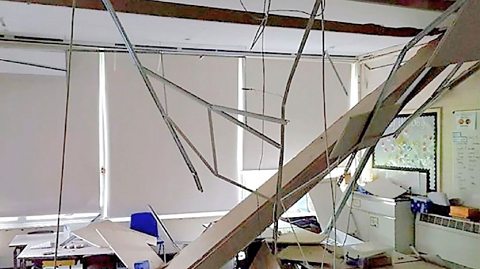
Ros Atkins on... Europe air travel and the summer surge
As Europe’s peak travel season arrives, the BBC’s analysis editor Ros Atkins looks at what is causing flight delays and cancellations. (Published 23 July 2023)

Ros Atkins on... Ukrainian nuclear plant fears. videoRos Atkins on... Ukrainian nuclear plant fears
Ukraine says Russia has planted ‘objects resembling explosive devices’ on the roofs of two reactors at the Zaporizhzhia Nuclear Power Plant. Russia has made counter-claims that Ukraine is planning to attack the plant. The BBC’s Analysis Editor Ros Atkins looks at what we know about the allegations, and what they tell us about the risk of an incident at Europe’s largest nuclear power station. (Published 5 July 2023)
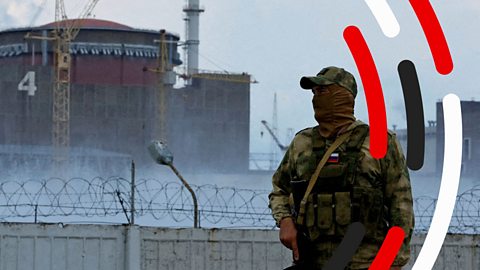
Ros Atkins on... five impacts of the Wagner mutiny. videoRos Atkins on... five impacts of the Wagner mutiny
The BBC’s Analysis Editor Ros Atkins looks at what the consequences are of the failed Wagner mutiny - for Yevgeny Prigozhin, Vladimir Putin, the Wagner Group, Russia’s military leaders – and for the war in Ukraine. (Published 25 June 2023)
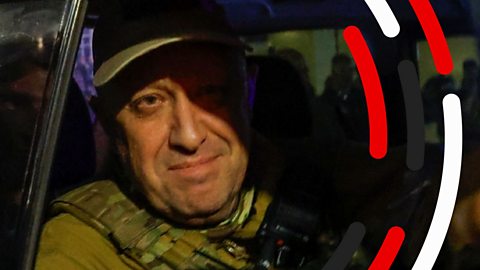
January - June 2023
Ros Atkins on… Manchester City's finances & Premier League charges. videoRos Atkins on… Manchester City's finances & Premier League charges
As Manchester City make it five top-flight titles in the past six years, BBC News' Ros Atkins looks at the issues raised by the club facing more than 100 Premier League charges for breaching financial regulations. (Published 21 May 2023)
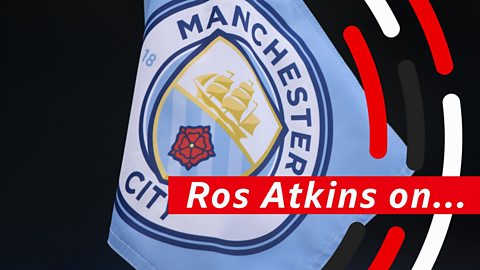
Ros Atkins on... Seven problems facing Russia in Ukraine. videoRos Atkins on... Seven problems facing Russia in Ukraine
As Ukraine prepares for a much anticipated counter-offensive against Russian forces, BBC Analysis Editor Ros Atkins looks at the challenges facing Russia’s military. (Published 16 May 2023)
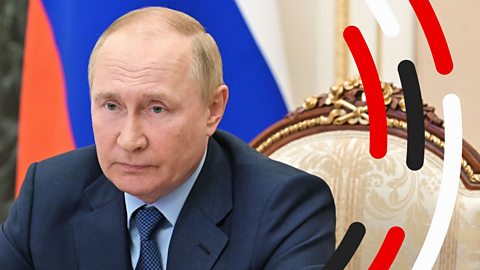
Ros Atkins on... the Coronation arrests. videoRos Atkins on... the Coronation arrests
The BBC’s Analysis Editor Ros Atkins examines the circumstances around the arrest of anti-monarchy protesters at the Coronation - the first to be made under the controversial Public Order Act. (Published 9 May 2023)
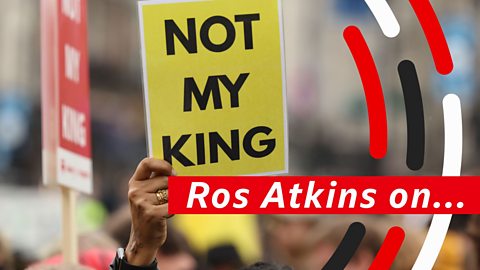
Ros Atkins on... the Russian videos appearing to show Kremlin drone attack. videoRos Atkins on... the Russian videos appearing to show Kremlin drone attack
The BBC’s Analysis Editor Ros Atkins looks at footage that has been circulating on Russian social media after Moscow claimed Ukraine tried to assassinate President Vladimir Putin. (Published 3 May 2023)
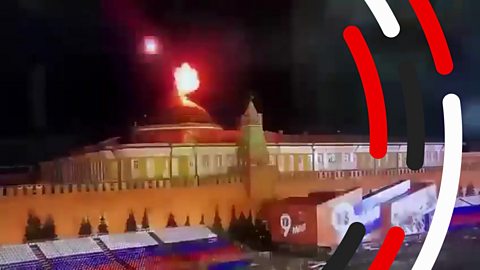
Ros Atkins on... the report that led to the resignation of the BBC chairman. videoRos Atkins on... the report that led to the resignation of the BBC chairman
The BBC’s Analysis Editor Ros Atkins examines the row that's led to the resignation of BBC chairman Richard Sharp, after a report found he broke transparency rules over his dealings with Boris Johnson. (Published 28 April 2023)

Ros Atkins on… Why were there queues at Dover? videoRos Atkins on… Why were there queues at Dover?
The BBC’s Analysis Editor Ros Atkins examines whether post-Brexit border checks were to blame for disruption at the Port of Dover at the weekend and to what extent. (Published 3 April 2023)

Ros Atkins on... How UK wages have failed to keep up with the cost of living. videoRos Atkins on... How UK wages have failed to keep up with the cost of living
Millions in the UK feel that their wages are not keeping up with the cost of living. Panorama explores the extent of the challenges facing the UK economy and hears from the Resolution Foundation, a think tank focusing on low-to-middle income households. Ros Atkins asks why so many people are feeling so poor. (Published 20 March 2023)
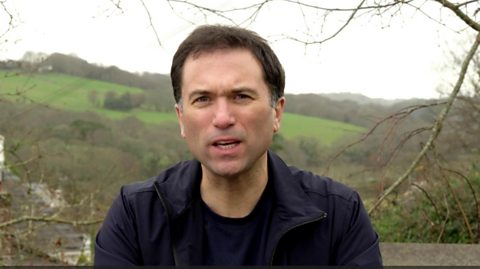
Ros Atkins on… Gary Lineker and the BBC’s impartiality crisis. videoRos Atkins on… Gary Lineker and the BBC’s impartiality crisis
The BBC’s analysis editor Ros Atkins examines what the BBC has called ‘grey areas’ in its impartiality guidance, after the corporation struck a deal with Gary Lineker over his controversial tweets. (Published 14 March 2023)
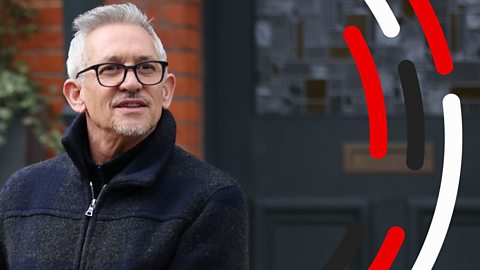
Ros Atkins on... The creeping TikTok bans. videoRos Atkins on... The creeping TikTok bans
China has accused the US of exaggerating national security fears about TikTok to suppress the Chinese company. US government agencies have been ordered to wipe the Chinese app from all staff devices within 30 days. There have also been similar steps taken in Canada and the EU. Ros Atkins looks at how we got here. (Published 2 March 2023)
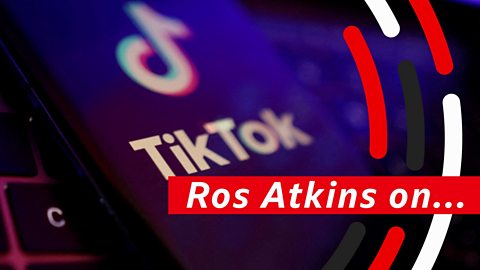
Ros Atkins on… Nadhim Zahawi’s tax affairs. videoRos Atkins on… Nadhim Zahawi’s tax affairs
BBC Analysis Editor Ros Atkins explains the background to the tax affairs of Tory party chairman, Nadhim Zahawi. (Published 24 January 2023)
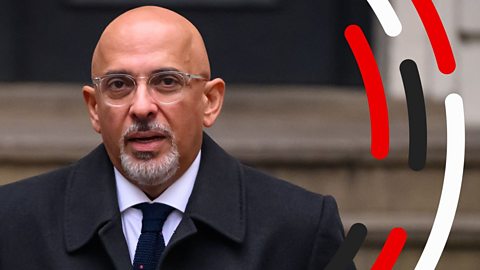
July - December 2022
Ros Atkins on… Why eggs are being rationed. videoRos Atkins on… Why eggs are being rationed
BBC Analysis Editor Ros Atkins looks at what’s causing egg supply issues in some UK supermarkets. (Published 25 November 2022)
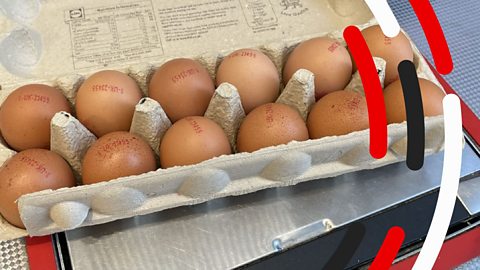
Ros Atkins on… How Qatar got to host the World Cup. videoRos Atkins on… How Qatar got to host the World Cup
BBC Analysis Editor Ros Atkins looks at the years of corruption allegations around Fifa awarding the 2022 World Cup to Qatar. (Published 13 November 2022)

Ros Atkins on... Is the 1.5C climate target still possible? videoRos Atkins on... Is the 1.5C climate target still possible?
BBC Analysis Editor Ros Atkins looks at whether the UN target to keep global warming below 1.5C above pre-industrial levels can still be reached. (Published 13 November 2022)

Ros Atkins on... reporting from Ukraine's frontline. Why we know so little about the battle for Kherson. videoRos Atkins on... reporting from Ukraine's frontline. Why we know so little about the battle for Kherson.
As Ukraine’s southern offensive continues, BBC News Analysis Editor Ros Atkins hears from the BBC’s international editor Jeremy Bowen about the difficulties of reporting from the frontline. (Published 3 November 2022)
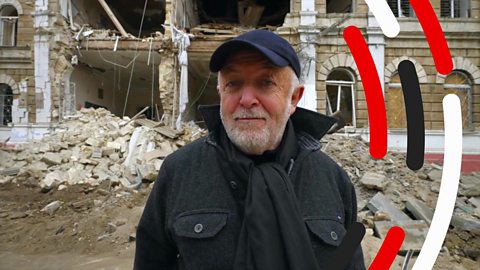
Ros Atkins on... Brexit and the UK economy. videoRos Atkins on... Brexit and the UK economy
British Prime Minister Rishi Sunak says he wants to build an economy that embraces the opportunities of Brexit. BBC News Analysis Editor Ros Atkins looks at Brexit’s impact on the UK economy. (Published 29 October 2022)
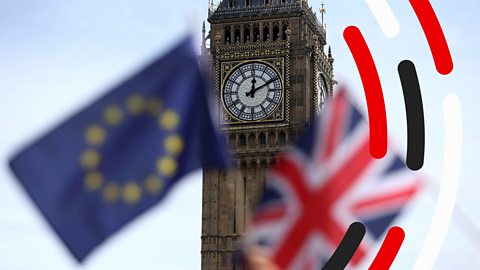
Ros Atkins on… Hu Jintao's puzzling China Congress exit. videoRos Atkins on… Hu Jintao's puzzling China Congress exit
There are many questions about why China’s former leader Hu Jintao was led out of the Communist Party Congress. BBC News Analysis Editor Ros Atkins looks at what we know about what happened, and why it mattered. (Published 28 October 2022)
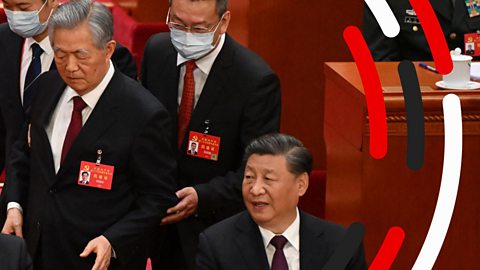
Ros Atkins on... why protests are happening in Iran. videoRos Atkins on... why protests are happening in Iran
The Supreme Leader of Iran has blamed the United States and Israel for orchestrating protests in Tehran and other cities following the death of a young woman who was detained by the nation's 'morality police'. Social media is playing a key role in the protests, as BBC News Analysis Editor Ros Atkins reports. (Published 4 October 2022)

Ros Atkins on… how inflation, Ukraine and drought are linked. videoRos Atkins on… how inflation, Ukraine and drought are linked
The BBC’s Analysis Editor Ros Atkins looks at links between the cost of living crisis, climate change, China, Covid and the war in Ukraine. (Published 2 Sep 2022)
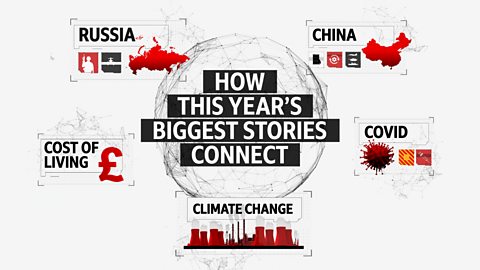
Ros Atkins on… Why this heatwave isn’t like 1976. videoRos Atkins on… Why this heatwave isn’t like 1976
The BBC’s Analysis Editor Ros Atkins examines why this heatwave is different to many the UK has experienced before. (Published 19 July 2022)

Ros Atkins on... Boris Johnson and the Lebedevs. videoRos Atkins on... Boris Johnson and the Lebedevs
Why Boris Johnson’s meeting with a former KGB agent without aides has caused controversy. (Published 14 July 2022)
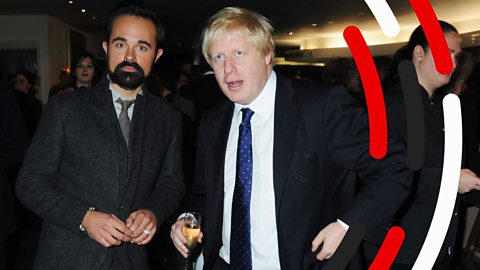
January - June 2022
Ros Atkins on… Why rail strikes are happening. videoRos Atkins on… Why rail strikes are happening
Ros Atkins examines why a dispute between the RMT union and employers has led to the biggest rail strike in decades. (Published 21 June 2022)
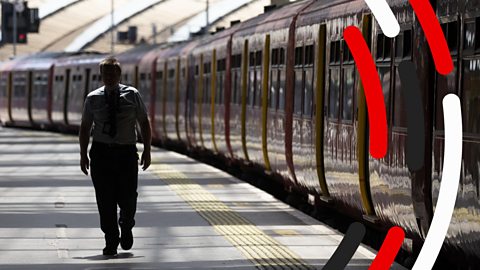
Ros Atkins on… The Rwanda asylum seekers plan. videoRos Atkins on… The Rwanda asylum seekers plan
Ros Atkins looks at the government’s controversial plan to fly some illegal arrivals to Rwanda, on a one way ticket. (Published 13 Jun 2022)
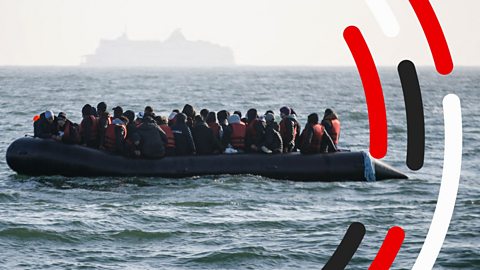
Ros Atkins on… The Sue Gray report. videoRos Atkins on… The Sue Gray report
Sue Gray's long-awaited report into lockdown gatherings held in and around Downing Street has been published in full. The BBC's Ros Atkins looks at the senior civil servant's report, which has criticised the culture and leadership in Downing Street. (Published 25 May 2022)
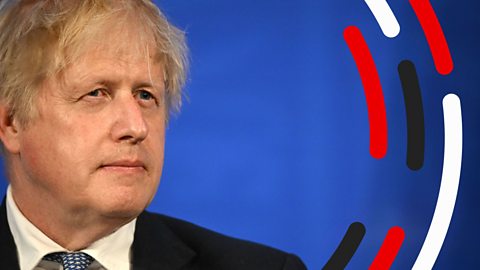
Ros Atkins on… The Northern Ireland Protocol. videoRos Atkins on… The Northern Ireland Protocol
Ros Atkins explains why the issues surrounding a key part of the UK’s deal with the EU are still not resolved after years of negotiations. (Published 14 May 2022)
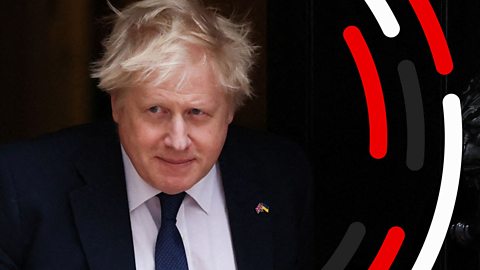
Ros Atkins on… Finland, Nato and Russia. videoRos Atkins on… Finland, Nato and Russia
Ros Atkins looks why Nato’s border with Russia looks likely to expand significantly, as both Finland and Sweden consider applying to join the alliance. (Published 26 April 2022)
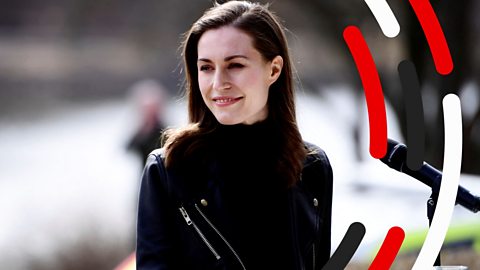
Ros Atkins on… the Downing Street parties and the Ministerial Code. videoRos Atkins on… the Downing Street parties and the Ministerial Code
Ros Atkins looks to establish how the Ministerial Code has ended up in the middle of this story and how there are questions about how effectively it can be implemented. (Published 22 April 2022)
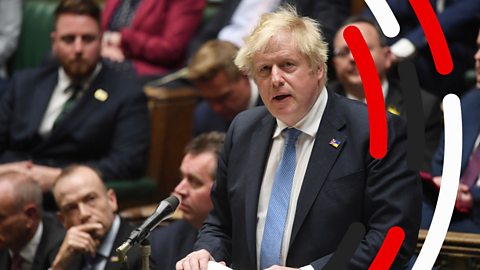
Ros Atkins on... how Ukraine became the front line between the West and Russia. videoRos Atkins on... how Ukraine became the front line between the West and Russia
Ros Atkins looks at the recent history of Ukraine's relationship with its neighbour. (Published 24 February 2022)
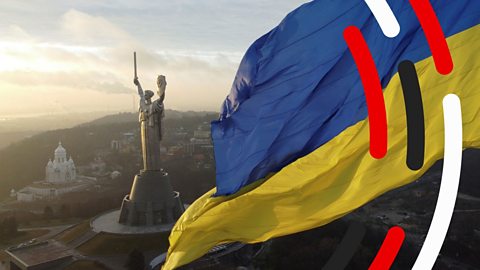
Teacher notes
PSHE and citizenship education specialist Michelle Springer offers advice for using the Ros Atkins explainer films in a classroom context.
The level of access that young people have to current events and global issues is vast and unbounded. They have the world in their pockets, along with the full array of opinions that comes with it. Sometimes this can leave them in an echo chamber that provides only one side of the story. Sometimes it can leave them with misinformation and fake news, providing no understanding of the issues at all.
When significant issues arise, schools have a duty to provide their students with unbiased information, and to help them navigate the complexities that come along with them. For teachers, with their own opinions and different levels of knowledge and understanding about these issues, this can become a daunting and unmanageable task.
Ros Atkins’ explainer films (explainers) provide teachers and schools with unbiased, simple explanations of each issue covered and can contribute significantly to the development of students’ critical thinking and digital literacy.
Providing a common stance for the school
The explainers provide an excellent way of ensuring that all students get the same information and in the same way. Showing the explainers as part of the whole school citizenship or tutorial programme provides schools with a level of consistency and factual knowledge that is difficult to obtain in a large school with different levels of ability and experience by the teachers delivering these topics.
Using the explainers in the classroom
Have a creative session around what impartiality means and identify things that you might see in an impartial discussion, then watch the explainers and look out for those things (and others).
The explainers can be used to consider different points of view on an issue. Teachers could watch the clips to identify where different points of view are presented and then play it for students, stopping the video to have students consider the pros and cons for that view before continuing to watch. A good example of this is this film on The Rwanda asylum seekers plan – straight after the first 15 seconds of the video, teachers could stop and ask students to consider points for and against, get feedback and then keep playing. This could be done again at 01:20, and so on.
Teachers could also show the explainers to provide students with a deeper understanding of a particular issue. Students look for patterns and connections with what they are studying and answer the question; what light does the clip shed on the topic under discussion?
An alternative method is to start with an open-ended question about the topic under discussion and then play the relevant clip. In geography or history for example, you could ask: “Do borders of countries always stay the same? How and why might they change? What might the consequences be?”. Students could discuss or write answers to these broad questions from their current knowledge and then teachers could play a clip such as How Ukraine became the front line between the West and Russia to shed light on these questions.
Using the explainers in specific subject areas
As suggested above, the explainers can be useful in a wide variety of subject areas, addressing specific subject-related content.
Citizenship/PSHE
Using the clips can play a major role in the development of digital literacy and critical thinking in school. The clips show a range of different media types and present information from a variety of sources. Students can be encouraged to use the CRAAP (Current, Relevant, Authority, Accuracy, Purpose) test to identify the credibility of a particular source and this can lead to a discussion of what reliable information looks like and how to evaluate a source.
English
Students can use the clips to look for facts versus opinions. For example, In the clip Keir Starmer’s Durham curry, the teacher could stop at The Sun headline shown at 00:41 and have students decide whether that is fact or opinion and explain why, focusing on the language used. They then listen on to consider Ros Atkins’ comments and compare to their own ideas. Teachers could also start by reading or listening to a news story and then have students write their view on it, with a justification. They then watch the explainer on that story and see where their view fits in.
Media
The clips can be used to identify different ways of presenting information. Students can look at how the information is presented, including how is it cut and edited and the language choices used by Ros Atkins in his presentation. Students can discuss what effect these things have on the clip. Teachers can flip this and have students consider how they might present a story in an unbiased and impartial way, and then watch the clips to see how many of their ideas they can spot, as well as look out for other ideas that they may not have thought about.
Where next?
Get started teaching media literacy with these fun KS3 and KS4 interactive lessons from Other Side of the Story that introduce students to the main media literacy concepts.
Other Side of the Story
Helping young people to make better choices about what you see and share online.
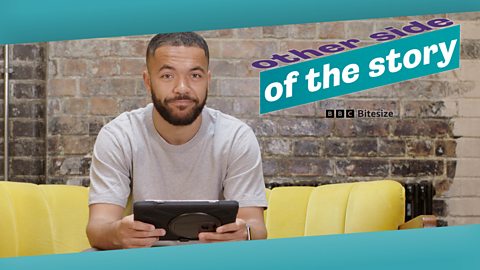
BBC Bitesize: Fact or fake
The lowdown on different types of fake news, who is behind it and why it helps to take a moment to pause before we post.

BBC Young Reporter: Real news
These lesson plans and resources aim to help secondary school students (11 to 18-year-olds) develop skills and methods to help determine what is real.
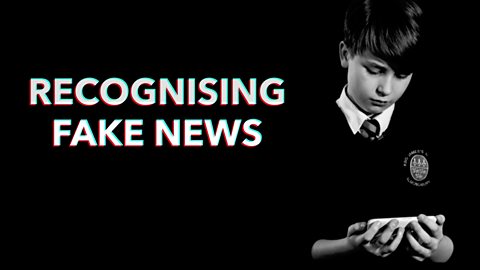
Making the News. collectionMaking the News
In this series of short films journalist Tina Daheley explores the various techniques used by BBC News to make the news for different audiences.
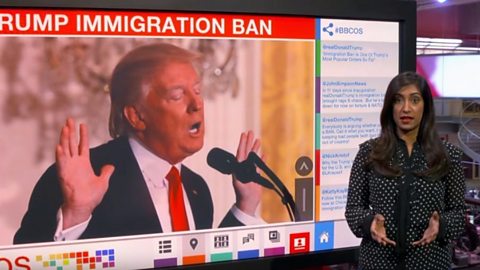
Digital Literacy. collectionDigital Literacy
A series of short films for secondary schools, which provides students with a toolkit for navigating the online world.

Making Media. collectionMaking Media
In this series of short films a group of young entrepreneurs explore the skills required in media production. Key skills covered include interviewing, researching and web design.
